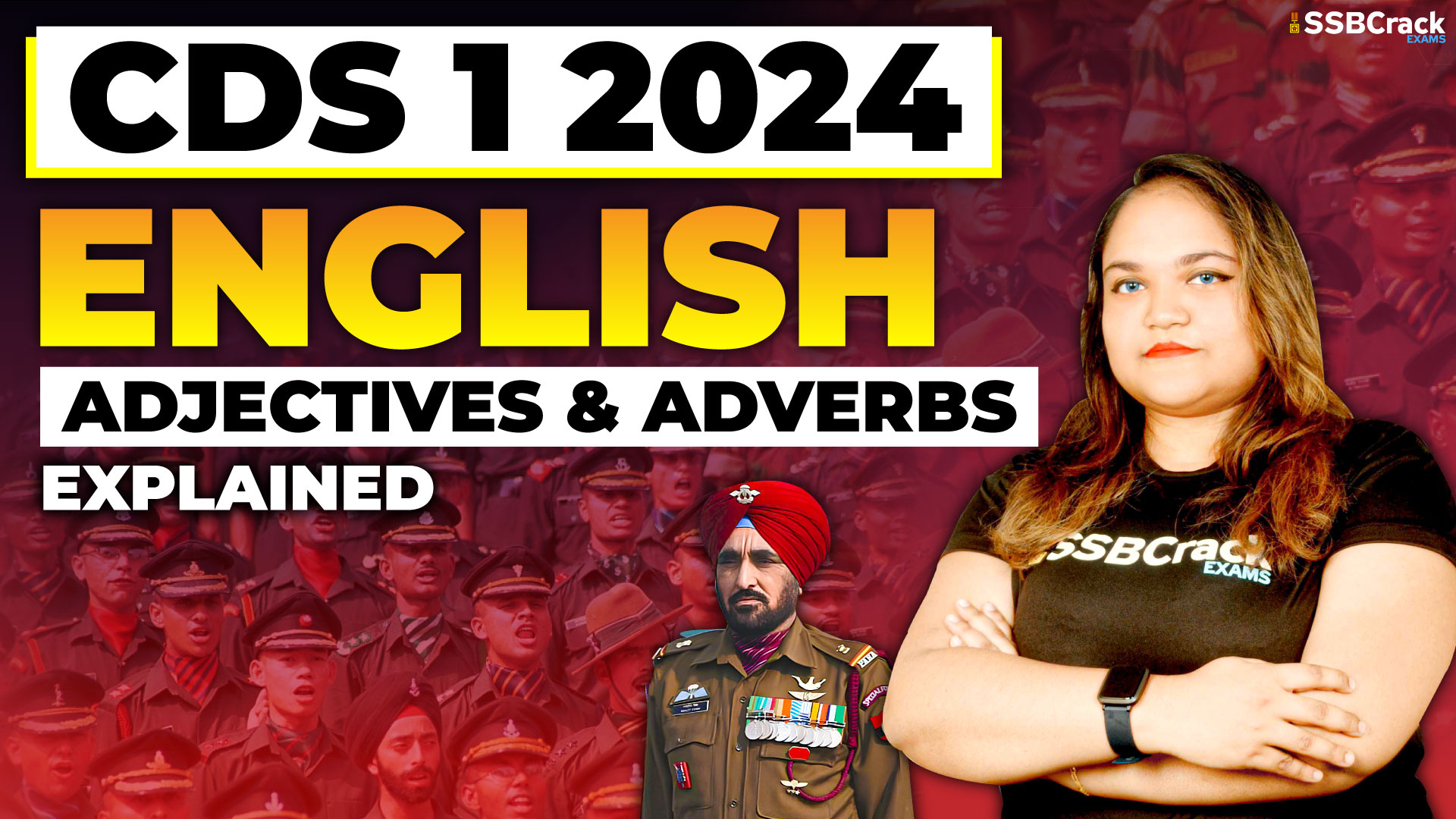The Combined Defence Services (CDS) examination is a rigorous assessment for individuals aspiring to serve in the esteemed armed forces. Within the English section of the CDS examination, a solid command of grammar is imperative, with particular attention to the distinctions between adjectives and adverbs. This article aims to elucidate the concepts of adjectives and adverbs, shed light on their roles, and highlight various confusing instances that CDS aspirants should be vigilant about while preparing for the exam.
- Understanding Adjectives:Adjectives are words that modify or describe nouns or pronouns, providing more information about their qualities, characteristics, or attributes. They play a crucial role in adding precision and vividness to language.
- Example 1: The brave soldiers faced the enemy without fear.
- Example 2: She wore a beautiful uniform during the ceremony.
- Understanding Adverbs:Adverbs, on the other hand, modify verbs, adjectives, or other adverbs. They provide additional information about how, when, where, or to what extent an action is performed.
- Example 1: The soldiers marched briskly through the training ground.
- Example 2: She spoke softly during the meeting.
- Differentiating Adjectives and Adverbs:a. Adjectives Modify Nouns: Adjectives enhance nouns by providing more information about their attributes. They answer questions like “What kind?” or “Which one?”
- Example: The tall tower overlooked the battlefield.
- Example: She completed the obstacle course effortlessly.
- Confusing Adjectives and Adverbs:a. Good vs. Well:
- Adjective: He is a good leader.
- Adverb: He leads the team well.
- Adjective: The effort requires a real commitment.
- Adverb: She worked really hard to achieve it.
- Adjective: He arrived late for the debriefing.
- Adverb: He has been arriving lately due to traffic.
- Adjective: The training was hard.
- Adverb: He hardly participated due to an injury.
- Adjective: The destination seemed far.
- Adverb: He ran farther than anyone else.
- Adjective (Superlative): It was the farthest they had ever traveled.
- Common Adjective and Adverb Errors to Beware Of:a. Confusing Adjective Forms: Incorrectly using adjectives as adverbs or vice versa, like saying “She performed real good” instead of “She performed really well.”b. Placement Errors: Misplacing adverbs or adjectives in sentences, such as “He solved the problem quickly” (correct) vs. “He solved quickly the problem” (incorrect).c. Double Negatives: Using double negatives with adverbs can lead to confusion. For example, instead of saying “I can’t never forget that day,” it should be “I can never forget that day.”
- Importance of Clear Usage in CDS Examination:a. Communication Precision: In the military, precise communication is paramount. Understanding the correct usage of adjectives and adverbs ensures officers can convey information accurately.b. Language Proficiency Assessment: The CDS examination evaluates candidates on language proficiency, including the correct use of adjectives and adverbs.c. Avoiding Ambiguity: Clarity in communication is vital to avoid misunderstandings or misinterpretations, particularly in mission briefings and reports.
- Strategies for Mastery:a. Thorough Study of Grammar Rules: Aspirants should delve into the rules governing adjectives and adverbs, understanding their roles and correct usage.b. Active Practice: Regularly practicing sentences and exercises involving adjectives and adverbs reinforces correct usage.c. Contextual Reading: Actively reading military literature exposes aspirants to correct adjective and adverb usage in relevant contexts, aiding in a more intuitive understanding.d. Feedback and Revision: Seeking feedback from peers or instructors on written exercises contributes to improvement, and regular revision helps in retaining learned rules.
Conclusion:
In conclusion, a clear understanding of adjectives and adverbs is indispensable for CDS aspirants aiming for success in the English section of the examination. By recognizing the distinctions between the two and being aware of confusing instances, aspirants can enhance their linguistic skills. Mastery of adjectives and adverbs not only ensures success in the CDS examination but also prepares candidates for effective communication in the dynamic and challenging environments inherent to a career in the armed forces.







